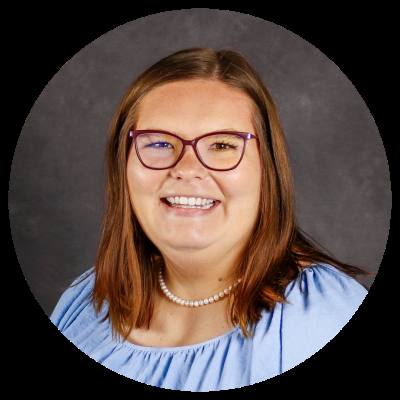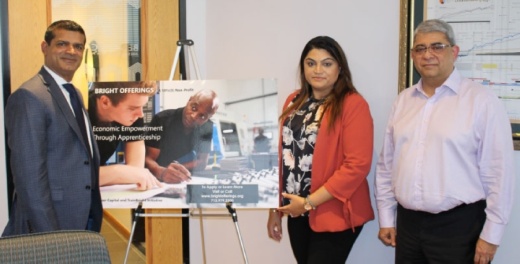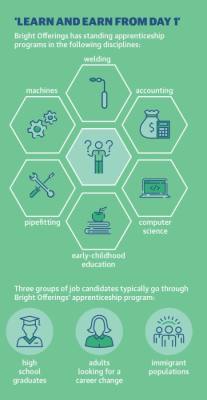“There seems to be, in the general public’s mind, a [misconception] about what apprenticeships are,” Bright Offerings co-founder and chair Salim Nathani said. “The moment I say apprenticeship, they think about skilled labor. That’s not what it is. I don’t know when we separated education from actual work. Apprenticeship, to me, is where you bring those two together.”
Using its slogan “Learn and Earn from Day 1” as a guide, the nonprofit partners with local colleges and employers to support job candidates through the application, training and certification requirements for employment, Salim said.
Bright Offerings has six different apprenticeship programs in machines, pipe fitting, welding, early-childhood education, accounting and computer science. Salim said he has seen the biggest demand for qualified job candidates in these sectors.
“The apprenticeship model is as old as time,” board member Sadruddin Currimbhoy said. “Well before universities existed, if you wanted to become a shoemaker, you went and you worked at that shop, and that’s how you learned the craft. This model sustained humanity for millennia.”
Noureen Nathani, the vice chair of the board and Salim’s wife, said three different types of people typically go through Bright Offerings’ apprenticeship program: high school graduates who feel college is not right for them or who do not have the means to attend college, adults who are looking to change careers, and skilled immigrants who may not have documentation of their qualifications.
“It was such an eye-opener that people are not able to get employed because they’re not getting the training,” Noureen said. “[Our program] is not just for individuals who are not able to afford college, but for people who are trying to find a new career path or need guidance.”
Salim said the nonprofit is able to connect candidates, companies and colleges in a seamless and integrated process that is beneficial for all three stakeholders.
“There’s a lot of momentum that’s going behind this,” Salim said. “Every student that wants to go to college, should. This is an alternative. This is something where they can come and say, ‘Here’s one more way that we can better our lives.’”






